 Now it is official what everyone in the business has known for the last 15 years. Back in 1991, Boris Yeltsin offered Finland to buy back Karelia - lost to the Soviet Union in WW II. This public secret has now been "revealed" by Finnish paper Kainuun Sanomat, which breaks a silent understanding in Finnish establishment of suppressing public debate on relations with Russia.
Now it is official what everyone in the business has known for the last 15 years. Back in 1991, Boris Yeltsin offered Finland to buy back Karelia - lost to the Soviet Union in WW II. This public secret has now been "revealed" by Finnish paper Kainuun Sanomat, which breaks a silent understanding in Finnish establishment of suppressing public debate on relations with Russia.In late December 1991, the Soviet Union awaited its final dissolution. Earlier in the month, the Belovezha agreement had effectively torpedoed the USSR, and republic after republic ceded from the Union. On 25 December, president Gorbachev resigned, and by New Year the red flag was lowered from the pinnacles of the Kremlin. In its place, the Russian tricolor was hoisted, signalling a Russia of uncertainty. As a new nation, Russia was in dire need of recognition as a sovereign and successor state of the Soviet Union. Furthermore, its economy was in free fall, with food shortages and an industry in total disarray. In both respects, Russia needed to become a player on the new world stage.
All this is well-known history now, but still serves to contextualise the situation when Yeltsin - allegedly - offered the return of Karelia in exchange for much needed money. On an ideological level, Russia's new leadership needed to part with the past and the injustices of history to build a new nation. Yeltsin had thus previously supported the independence of the Baltic states, partly out of personal conviction, and partly to further undermine Gorbachev's position. There was also a liberalising belief that one
 way out of the problems was by local and individual initiatives. Thus, in June 1991, Yeltsin had urged Russia's regions to take as much sovereignty as they could digest. Also, a similar offer was made to Japan for the return of the Kurile islands, which the Soviet Union had conquered in 1945. The offer to Japan was still on the table until May 1993, when Yeltsin cancelled a visit to Japan for further talks on the issue, whereafter no mention has been made on it from the Russian side.
way out of the problems was by local and individual initiatives. Thus, in June 1991, Yeltsin had urged Russia's regions to take as much sovereignty as they could digest. Also, a similar offer was made to Japan for the return of the Kurile islands, which the Soviet Union had conquered in 1945. The offer to Japan was still on the table until May 1993, when Yeltsin cancelled a visit to Japan for further talks on the issue, whereafter no mention has been made on it from the Russian side.According to Kainuun Sanomat, in response to the Russian offer, Finnish president Mauno Koivisto appointed a secret group to analyse the costs for regaining Karelia. An initial cost of reconstruction was estimated to 13 billion euro, but subsequently the price tag increased to 71 billion euro. Obviously, this was too high a price to pay for Karelia, and - even though Russia repeatedly reiterated the offer during spring 1992 - president Koivisto in the end told Yeltsin in July 1992 that "Finland cannot afford Karelia."
Obviously, there were also security policy considerations, as the return of Karelia would bring Finland within sight of St. Petersburg - a problem that Russia historically had taken issue with. Also, Finnish public opinion seemed ambivalent or straightout negative to the idea, so it might have proven politically hazardous to raise the issue publicly. Still, regaining Karelia
 was publicly discussed in Finland at the time, even though few may actually have realised that there was a concrete offer on the table. Then, the main proponents for the this cause were nationalist Karelian exile organisations, which only served to make the generation having lived through the war increasingly apprehensive. The price in human lives and suffering had been too high to once more risk the chance of having Finland's great neighbour too close at hand. The price once paid by the loss of Karelia - 10% of Finnish territory and 400,000 refugees - was simply too high to risk its reiteration in the future. A final reason why the Russian offer was turned down might have been an impending economic crisis - partly due to the total loss of trade with Russia after soviet demise - bringing mass unemployment to Finland.
was publicly discussed in Finland at the time, even though few may actually have realised that there was a concrete offer on the table. Then, the main proponents for the this cause were nationalist Karelian exile organisations, which only served to make the generation having lived through the war increasingly apprehensive. The price in human lives and suffering had been too high to once more risk the chance of having Finland's great neighbour too close at hand. The price once paid by the loss of Karelia - 10% of Finnish territory and 400,000 refugees - was simply too high to risk its reiteration in the future. A final reason why the Russian offer was turned down might have been an impending economic crisis - partly due to the total loss of trade with Russia after soviet demise - bringing mass unemployment to Finland.So, how has the Finnish establishment reacted to these news? Well, denial seems to be the word of the day in Helsinki. Despite the fact that Koivisto on numerous occasions has both said and written things, strongly supporting that there actually was a Russian offer, he simply states through his secretary that these news "do not feel familiar." Also, most high-ranking politicians and diplomats of those days vehemently deny anything of the sort of a Russian offer to return Karelia. It is more than obvious that official Finland now closes it ranks in face of an alternative to official history.
Why the Karelia affaire is disclosed right now is unclear. Ever since 1991, information about the Russian offer has been covered by media and documentaries, although often more as a footnote than as the main story. The difference this time over though, seems to be that now there may be detailed information exactly about how the entire affaire was handled. Another motive may be that some Finnish interests now want to discredit the last moral justifications for Finland's post-war appeasement policy in relation to the Soviet Union. With an increasingly menacing Russia at its borders, and a debate on Finnish accession to NATO out in the cold, this may prove an opportunity for NATO-adherents to undermine proponents of more accomodating relations with Russia, in contrast to what would be the result of Finnish NATO-membership.
So, why these massive denials. If there was a Russian offer on the table - as much now indicates
 - it seems the only decent and sound decision would nevertheless have been to turn it down. Opting for status quo instead of staggering costs in a dire and uncertain economic situation in addition to the great uncertainties of how a future Russia would develop, seems the most secure and responsible decision to make. If so, president Koivisto would once more have risen to the task of being a statesman of the best Finnish tradition.
- it seems the only decent and sound decision would nevertheless have been to turn it down. Opting for status quo instead of staggering costs in a dire and uncertain economic situation in addition to the great uncertainties of how a future Russia would develop, seems the most secure and responsible decision to make. If so, president Koivisto would once more have risen to the task of being a statesman of the best Finnish tradition.Still, memory is short, and presuming that the public in retrospect would be able to correctly assess the situation in the early 1990s is perhaps too much to ask for. Therefore, what is at stake is the reputation and historical verdict of an entire generation of politicians in Finland, which only serves as a driving-force to making the Karelia affaire into a true scandal. Perhaps, the right thing to do - instead of continued denial - would simply be to proudly confess that this was the only responsible thing to do given the historical circumstances. This would though not be in line with Finnish tradition, which perhaps is the reason why it is good that this affaire now comes out into the open. As Russia is returning to the past it parted with in 1991, Finland may need to part with a past it never totally left behind. As long as this is not the case, Finland will continue to walk a thin line in its relations with Russia.
Finally, as for Yeltsin's part in the Karelia affaire, most Russians would today claim this as further evidence that he sold out Russia. Yeltsin's sense of a historical role and obligation to part with and try to make good for the crimes of communism is something current Russia wants to forget. Paradoxically, exactly this morale and courage of the early Yeltsin, to stand up for his beliefs in a democratic and just Russia, is what he will go down in history for. To this should also be added Yeltsin's attempts to put Finlandisation behind in relations between Moscow and Helsinki.


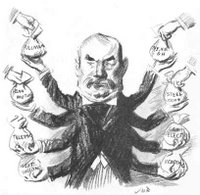
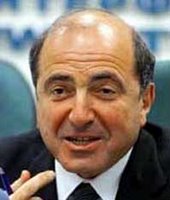
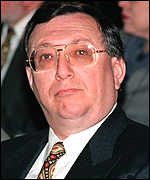
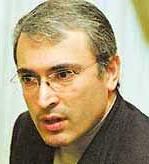
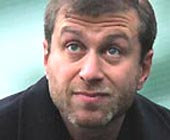
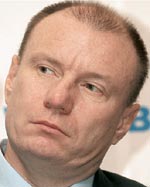
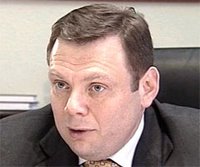
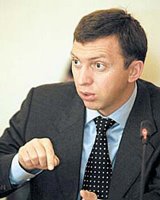
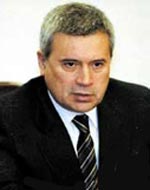 growing expertise, Alekperov in 1991 became first deputy minister of fuel and energy and then acting minister. His main political accomplishment was bringing Russia's three biggest oil companies together to form LukOil. Not surprisingly, Deripaska then became president of Lukoil, a position he has retained ever since. Today, Lukoil is one of the world's mightiest oil companies with energy reserves only equalled by Exxon. He is considered Russia's tenth richest and the 38th worldwide.
growing expertise, Alekperov in 1991 became first deputy minister of fuel and energy and then acting minister. His main political accomplishment was bringing Russia's three biggest oil companies together to form LukOil. Not surprisingly, Deripaska then became president of Lukoil, a position he has retained ever since. Today, Lukoil is one of the world's mightiest oil companies with energy reserves only equalled by Exxon. He is considered Russia's tenth richest and the 38th worldwide.
